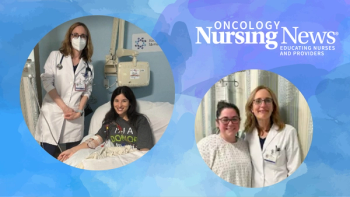
The Road Ahead: Future Directions in Metastatic Melanoma Treatment
Panelists discuss the importance of effective communication and multidisciplinary collaboration in managing immunotherapy toxicities and ensuring seamless patient care, while highlighting promising advances in melanoma treatment and the role of telehealth and community outreach in expanding access and improving outcomes.
Episodes in this series

Effective communication and strong connections between patients, their families, and health care teams are crucial, especially in the era of immunotherapy. Early recognition of treatment toxicities, like adrenal insufficiency, can prevent serious complications. Establishing clear, accessible communication channels such as patient portals, phone lines, or electronic messaging ensures patients feel supported and informed. Additionally, having a multidisciplinary team—including specialists in gastroenterology, dermatology, endocrinology, and clinical pharmacists—allows for timely consultation and comprehensive toxicity management, enhancing patient safety and treatment success.
Team structure and collaboration are key factors in delivering high-quality patient care. Building relationships among oncologists, nurse practitioners, care coordinators, and research staff fosters open communication and resource sharing. This team-based approach is particularly important when coordinating with community oncologists or other health care providers, ensuring that patients experience seamless, comprehensive care. Efficient information exchange and direct contact help avoid delays and frustration, benefiting both patients and care teams alike.
Looking ahead, the future of melanoma treatment is promising due to ongoing research and innovative therapies. New immunotherapy combinations, cellular therapies, bispecific T-cell engagers, and oncolytic viruses offer hope for improved efficacy and reduced toxicity. Telehealth and community outreach also expand access to care, especially for underserved or rural populations. Despite advances, challenges remain in managing toxicities and resistance, but the melanoma care community’s dedication to collaboration and continuous learning drives optimism. Ultimately, the goal is to help patients live longer, healthier lives while navigating cancer with dignity and support.
Newsletter
Knowledge is power. Don’t miss the most recent breakthroughs in cancer care.





